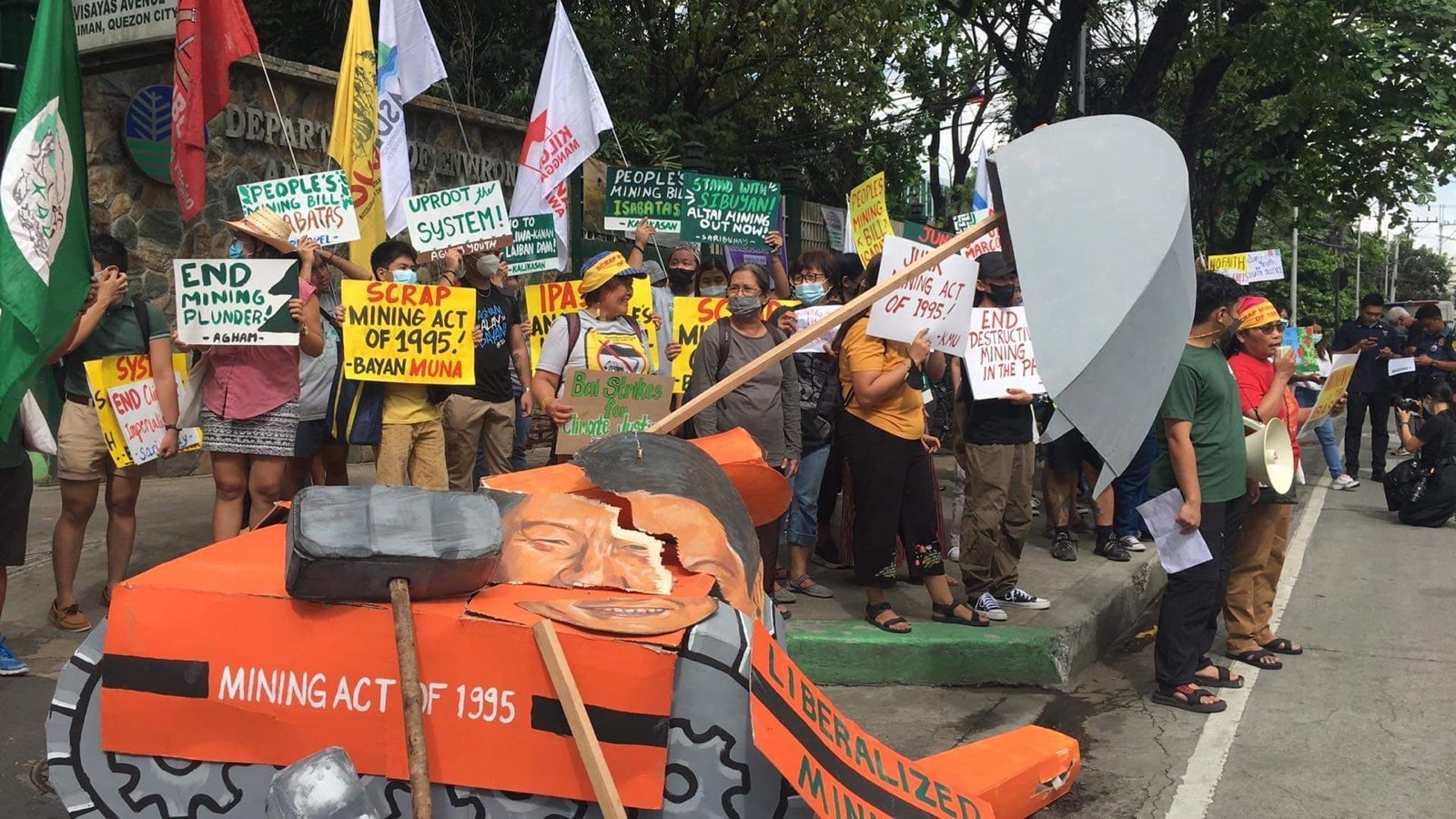DENR pressed to act on destructive mining that displaces farmers and indigenous people
In a protest at the Department of Environment and Natural Resources this morning, the Kilusang Magbubukid ng Pilipinas expressed support to the people of Sibuyan in Romblon for their unwavering determination to fight mining company Altai Phils. Mining Corp. “The valiant Sibuyanons will always be remembered and emulated for their steadfast defense of their land and resources. Mabuhay ang mamamayan ng Sibuyan na nagtatanggol sa lupa at kalikasan,’ according to KMP chairperson Danilo Ramos.
KMP said large-scale extractive operations displaced farmers and indigenous peoples from their land and communities. It also resulted in massive environmental degradation, making the country even more vulnerable to extreme climatic events.

The Global Climate Strike led by progressive environmental groups also marks the 28th year of the Mining Act of 1995, enacted during the Fidel Ramos regime. The law allows 100 percent foreign ownership of mining operations under a Financial or Technical Assistance Agreement (FTAA). This provision enticed 20 of the world’s biggest mining companies to operate in the Philippines. It also provided many incentives to prospective mining companies, including political rights, full ownership of land, and tax holidays. As a result, from 1994 to 1996, the Philippines hosted a 400-percent increase in foreign mining companies.
“We demand the repeal of the Mining Act that allowed large-scale local and foreign mining companies to scrape and plunder our mountains, seabeds, and almost all of our natural resources. We still remember the first mining tragedy under the Mining Act of 1995 — the Marcopper disaster in Marinduque that spilled mine tailings and toxic mine waste into the Makulapnit-Boac rivers. We will never forget the Pantukan mining landslide in 2012 that killed 25 miners in Compostela Valley and the Philex-Padcal mining disaster that spilled 20.6 million tons of toxic mine wastes into Itogon, Benguet’s bodies of water. Large-scale mining has been too costly for us. It is time to protect and preserve our land and resources.
Rodrigo Duterte signed EO 130, which lifted the ban on new mining agreements. Now under Marcos Jr., we are witnessing an upheaval of resistance against destructive mining operations — in Nueva Vizcaya (OceanaGold), in Sibuyan, Romblom (Altai Mining), in Brooke’s Point, Palawan (Ipilan Nickel), in Zamboanga Del Norte (Zamboanga Nickel) and many others.
Today’s activity also supports the upcoming March 29 Day of the Landless, which will carry the theme Rural Peoples Unite for Food, Land, and Climate Justice. ###



